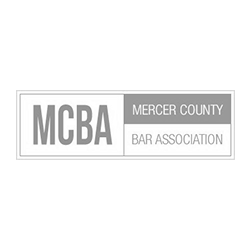Mandatory Retirement in Partnerships and Professional Corporations
Generally speaking, state and federal age discrimination laws prohibit an employer from imposing a mandatory retirement age; however, these laws only apply to individuals classified as employees, and do not apply to bona fide partners and shareholders in a closely held professional corporation. By way of example, law firms and physician practices organized as partnerships or professional corporations may, in some instances, require partners or shareholders to retire at a certain age and sell their interests in the firm.
Federal Law
The Age Discrimination in Employment Act (ADEA) applies to employers with twenty or more employees and prohibits employers from discriminating “against any individual with respect to his compensation, terms, conditions, or privileges of employment, because of such individual’s age[.]” Compulsory retirement of employees at a certain age is not permitted unless the employee is age sixty-five or older, is employed in a bona fide executive or a high policy making position, and such employee is entitled to an immediate non-forfeitable annual retirement benefit of at least $44,000.
The EEOC has set forth a six-factor test to determine whether a shareholder-director is an employee (and thus protected by the statute) or an employer (and thus not protected by the statute): I. Whether the organization can hire or fire the individual or set the rules and regulations of the individual’s work. II. Whether and, if so, to what extent the organization supervises the individual’s work. III. Whether the individual reports to someone higher in the organization. IV. Whether and, if so, to what extent the individual is able to influence the organization. V. Whether the parties intended that the individual be an employee, as expressed in written agreements or contracts. VI. Whether the individual shares in the profits, losses, and liabilities of the organization. [EEOC Compliance Manual §605:0009.] The United States Supreme Court endorsed the EEOC’s six-part test in Clackamas Gastroenterology Associates v. Wells, emphasizing that the employer is the group of persons who own and manage the enterprise and that the mere fact that a person has a particular title is not dispositive. The court commented that where shareholders control the operation of the business, share the profits and are personally liable for malpractice claims, those factors weigh in favor of determining that the shareholder is not an employee protected by the discrimination laws. An additional rationale for finding that partners and professional corporation shareholders are not employees subject to the discrimination laws is that by virtue of their status as owners they have other protection under the law.
New Jersey Law
The New Jersey Law Against Discrimination (“NJLAD”) applies to employers of all sizes and prohibits an employer from requiring an employee to retire because of age. Similar to federal law, New Jersey law permits mandatory retirement of bona fide executives or high-level policymakers if the employee is entitled to an “immediate non-forfeitable annual retirement benefit . . . of at least $22,000[.]”
The New Jersey Supreme Court has endorsed the same six-factor test approved by the United States Supreme Court in determining whether a shareholder-director is an employee protected by the New Jersey discrimination statutes. In Feldman, the New Jersey Supreme Court emphasized that “the focus should be on the party’s true power and influence within the organization[,] . . . incorporat[ing] an in-depth inquiry into the dynamics of an organization [revealing] which shareholder-directors are in a position to influence the operation and which are marginalized and have power in name only.” In Feldman, the Court determined that where plaintiff was one of five or six shareholder-directors that shared in the management and control of the firm, possessed an equal vote and voice in all matters, and oversaw credentialing of other shareholders giving rise to the dispute among the shareholders, she was not a protected “employee” under New Jersey discrimination law. However, the Court also noted that in cases where the plaintiff is “a shareholder-director in name only, [is] less powerful than any other shareholder-director, or [where] the power-sharing arrangement set forth in the Agreement [is] not the real state of affairs[,] [e]vidence of any of those claims would likely” create a question of fact concerning whether the shareholder was protected by the discrimination laws.”
Thus, in cases where partners or shareholders in a professional corporation have equal authority over the management and operation of the firm, share in the profits and losses of the firm, and are subject to personal liability for professional malpractice, mandatory retirement provisions may be included in a partnership or shareholder agreement and likely will be enforced if challenged.
-


-
Ian Hammett- Estate Planning Article SeriesTips for College Students & Parents: Be Prepared
As families begin to plan for their child’s transition into college, there are many practical logistics to consider. One such item that should be on the top of the list is to ensure they are prepared to be on their own from a legal perspective. At Mason, Griffin & Pierson, we offer a program to counsel college students and their parents in such matters. To find out more about preparing documents for your student, Click Here.
“Do I really need a Will?“ The answer for almost all adults in New Jersey, from those just starting out to those well into retirement years, is yes, you should have a Will.
At Mason, Griffin & Pierson, we can assist clients develop a comprehensive estate plan to express their wishes that incorporates, as appropriate, estate and gift tax planning strategies and prepare the documents. Documents include Last Wills and Testaments, Powers of Attorney, and Advance Directives for Health Care.
To find out more about estate planning, Click Here. To schedule a no obligation consultation, Click Here. -
New Reporting Requirements Corporate Transparency Act On January 1, 2024, reporting requirements under the Corporate Transparency Act ("Act"), went into effect. All businesses subject to the Act will have to report specific information on the company and certain individuals that own and/or control the company. Mason, Griffin & Pierson is happy to guide you through this reporting process and answer any questions that you may have. Please do not hesitate to reach out if you would like our assistance.
On January 1, 2024, reporting requirements under the Corporate Transparency Act ("Act"), went into effect. All businesses subject to the Act will have to report specific information on the company and certain individuals that own and/or control the company. Mason, Griffin & Pierson is happy to guide you through this reporting process and answer any questions that you may have. Please do not hesitate to reach out if you would like our assistance.
-
Sharon A. Dragan receives the Michael A. Pane Ethics In Government Award Congratulations to Sharon A. Dragan for receiving the Michael A. Pane Ethics In Government Award. The award was presented by the NJILGA at the New Jersey State League of Municipalities November convention. The Michael A. Pane Ethics In Government Award honors a municipal professional who exemplifies the highest standards of ethics and whose work has significantly enhanced the integrity of local government. November 2023
The Michael Pane Award, established by the Pane Family and the New Jersey State League of Municipalities, is given in honor of Michael A. Pane, Sr., who was the long-time editor of the Municipal Law Review, president and trustee of the New Jersey Institute of Municipal Attorneys, counsel to the New Jersey Association of Municipal Clerks, counsel to the League of Municipalities and author of the New Jersey Practice Series, Local Government Law volumes.
Congratulations to Sharon A. Dragan for receiving the Michael A. Pane Ethics In Government Award. The award was presented by the NJILGA at the New Jersey State League of Municipalities November convention. The Michael A. Pane Ethics In Government Award honors a municipal professional who exemplifies the highest standards of ethics and whose work has significantly enhanced the integrity of local government. November 2023
The Michael Pane Award, established by the Pane Family and the New Jersey State League of Municipalities, is given in honor of Michael A. Pane, Sr., who was the long-time editor of the Municipal Law Review, president and trustee of the New Jersey Institute of Municipal Attorneys, counsel to the New Jersey Association of Municipal Clerks, counsel to the League of Municipalities and author of the New Jersey Practice Series, Local Government Law volumes.
-
Liz Zuckerman appointed to the District VII Ethics Committee: The Supreme Court of New Jersey appointed Elizabeth Zuckerman to serve on the District Ethics Committee for District VII (DEC VII) for a three-year term. The district includes Mercer County. August 23, 2023
The Supreme Court of New Jersey appointed Elizabeth Zuckerman to serve on the District Ethics Committee for District VII (DEC VII) for a three-year term. The district includes Mercer County. August 23, 2023
-
Paul M. Bishop named Director We are pleased to announce the election of Paul M. Bishop to the Board of Directors, Mason, Griffin & Pierson, PC. Paul, one of the firm’s senior litigators, practices business, commercial, and general litigation, and represents clients in complex disputes throughout New Jersey’s state and federal courts. July 2023
We are pleased to announce the election of Paul M. Bishop to the Board of Directors, Mason, Griffin & Pierson, PC. Paul, one of the firm’s senior litigators, practices business, commercial, and general litigation, and represents clients in complex disputes throughout New Jersey’s state and federal courts. July 2023
- June 2022
- October 2021
- May 2021
- March 2021
- February 2021
- January 2021
- December 2020
- March 2020
- February 2020
- January 2020
- December 2019
- October 2019
- July 2019
- June 2019
- May 2019
- March 2019
- January 2019
- December 2018
- November 2018
- October 2018
- September 2018
- June 2018
- May 2018
- April 2018
- March 2018
- February 2018
- January 2018
- December 2017
- November 2017
- October 2017
- September 2017
- August 2017
- June 2017
- May 2017
- April 2017
- February 2017
- December 2016
- November 2016
- October 2016
- September 2016
- July 2016
- June 2016
- May 2016
- April 2016
- March 2016
- February 2016
- January 2016
- December 2015
- November 2015
- October 2015
- September 2015
- July 2015
- June 2015
- May 2015
- April 2015
- March 2015
- February 2015
- January 2015
- December 2014
- November 2014
- October 2014
- September 2014
- August 2014
- July 2014
- June 2014
- May 2014
- April 2014
- March 2014
- February 2014
- January 2014
- December 2013
- November 2013
- October 2013
- September 2013
- August 2013









